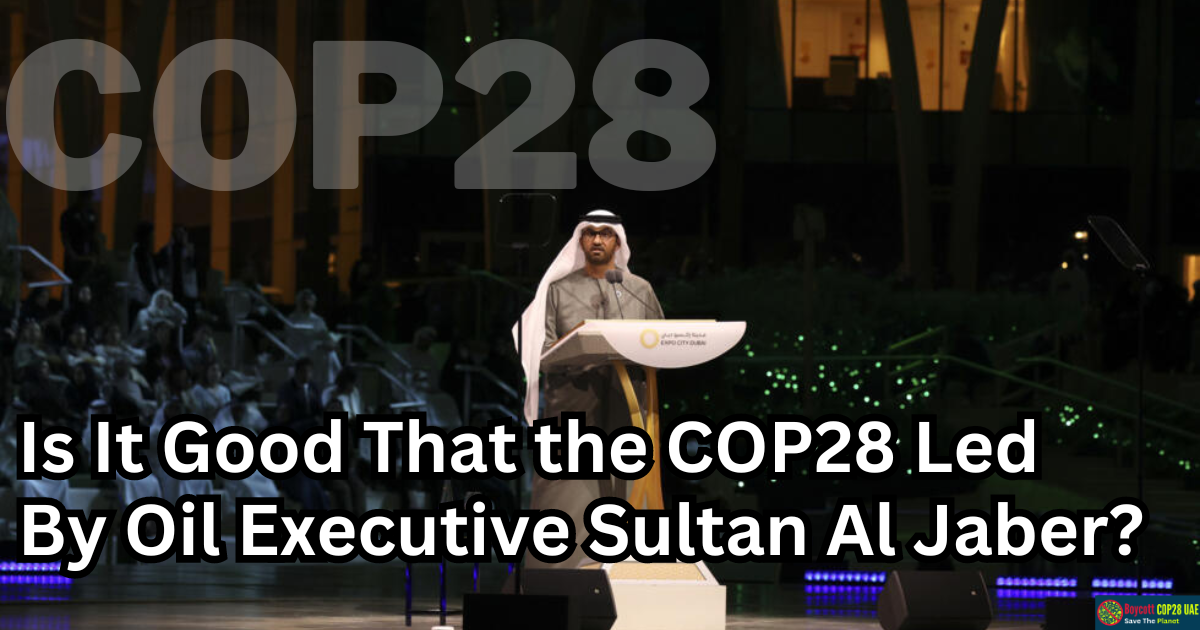This December, global climate negotiators will convene in the United Arab Emirates for the eagerly anticipated COP28 summit, the 28th meeting of the Conference of Parties. These international climate talks are considered pivotal in the fight against climate change, yet doubts and skepticism loom over the event, primarily due to the choice of its leadership.
In a surprising move that ignited fierce debate, the UAE announced earlier this year that Sultan Ahmed al-Jaber, the CEO of the state-owned Abu Dhabi National Oil Co. (ADNOC), would be appointed as the president-designate of COP28. This decision bestowed significant influence over the summit’s agenda upon a figure deeply associated with the fossil fuel industry.
Leading political figures in the United States and Europe promptly called for al-Jaber’s resignation, arguing that his ties to the fossil fuel sector represented a disturbing capture of the United Nations climate process. Former U.S. Vice President Al Gore asserted that the fossil fuel interests had, to a concerning extent, infiltrated the COP leadership by placing the CEO of one of the world’s largest oil companies at the helm of COP28.
Certainly, concerns about the influence of fossil fuel industries in impeding climate-friendly policies are not unfounded. Extensive evidence indicates that major fossil fuel corporations were aware of the climate-altering consequences of their products for decades but actively sought to deny climate science and thwart climate policies.
Nevertheless, the calls to boycott COP28 and depose al-Jaber as its leader have sparked a divisive debate. These calls challenge the integrity of the United Nations climate negotiations and potentially overlook the opportunities within the COP28 agenda. Before delving deeper into the controversy, it is essential to understand the process by which COP presidents are appointed.
The selection of the host country for a COP summit is managed through a democratic rotation among six regions, as outlined by the United Nations. Within each region, member countries collaborate to choose their representative, who subsequently makes their case. The decision is then assessed and confirmed by the secretariat responsible for overseeing the U.N. Framework Convention on Climate Change.
In the case of COP28, the Asia-Pacific region, characterized by a diverse mix of developing nations, endorsed the United Arab Emirates and Sultan Ahmed al-Jaber as their representatives. However, the decision has faced criticism, especially in light of the UAE’s position as one of the world’s largest oil-producing nations.
For some developing nations in the Global South, the idea of transitioning away from fossil fuels, a notion fervently advocated by numerous activist groups and nations heading into COP28, appears not only challenging but potentially detrimental to their economic development prospects.
The selection of the UAE and al-Jaber raises concerns about the influence of oil-producing nations in shaping climate policy. Critics argue that having a leader from such a nation in a position of power could compromise the credibility and effectiveness of the summit. They believe al-Jaber’s leadership might favor fossil fuel interests over the global imperative to combat climate change.
Indeed, the controversy surrounding al-Jaber’s appointment underscores a fundamental dilemma faced by the international community. On one hand, the imperative to combat climate change is undeniable, and rapid transitions away from fossil fuels are essential. On the other hand, many developing nations rely on these resources for economic stability, and their concerns must not be overlooked in pursuing global climate goals.
Moreover, the COP28 agenda holds immense potential for addressing these complex challenges. It offers an opportunity for nations to come together, share ideas, and forge partnerships that can pave the way for a sustainable, equitable energy transition. The global community should not lose sight of the fact that COP28 represents a critical platform for cooperative action, and boycotting it could hinder progress on this pressing issue.






